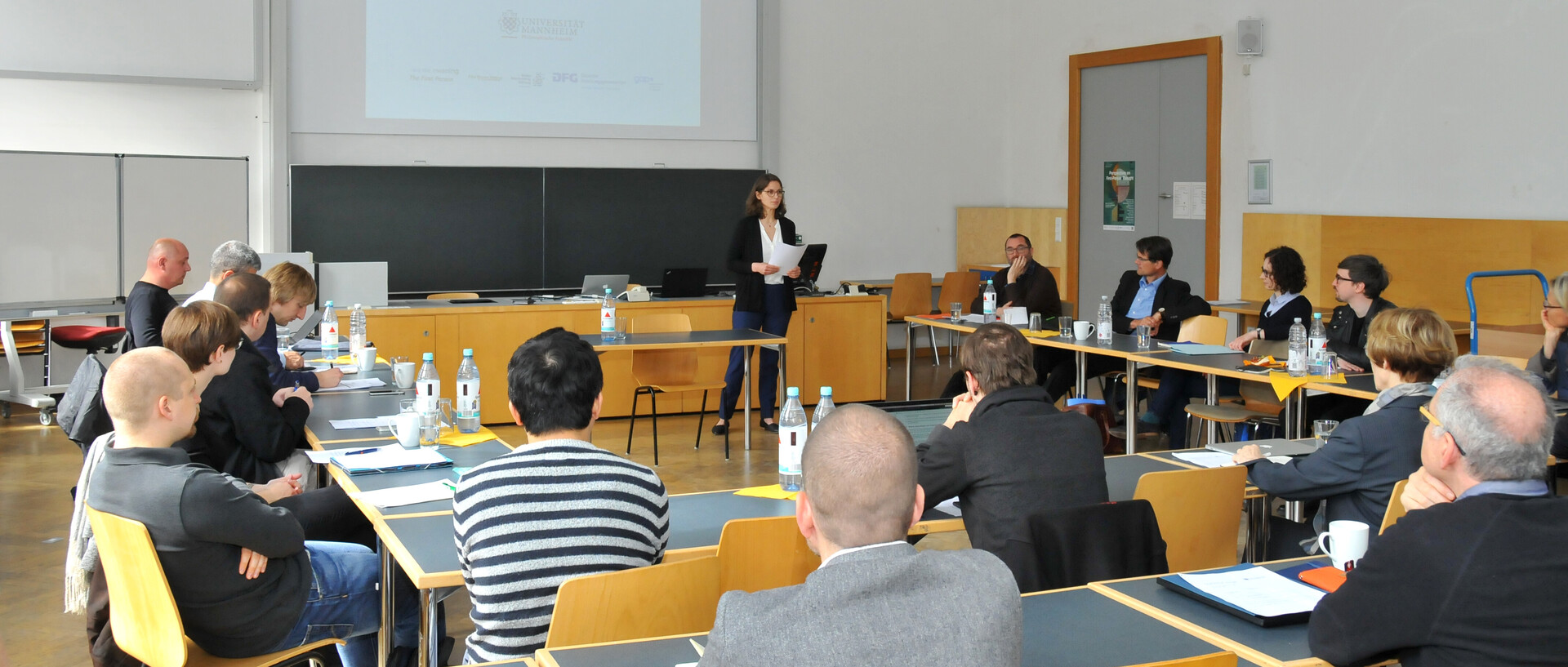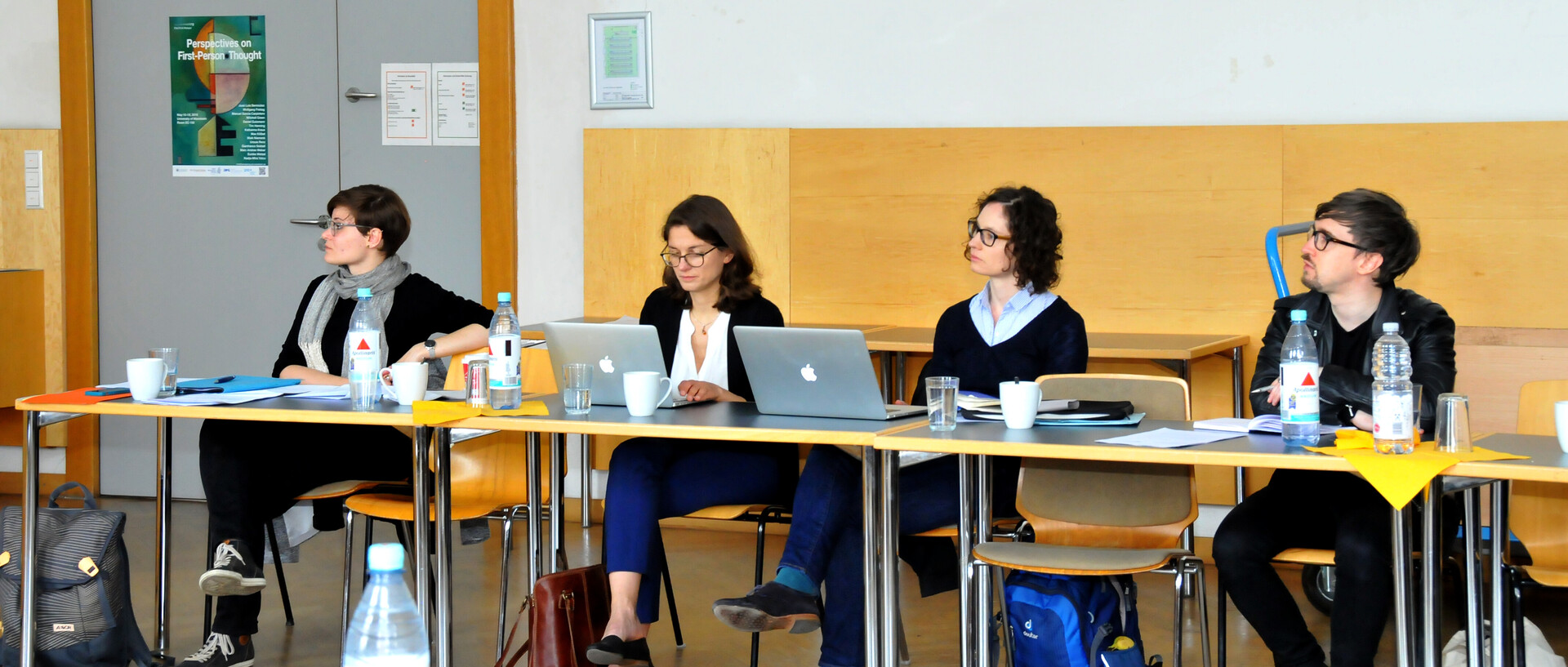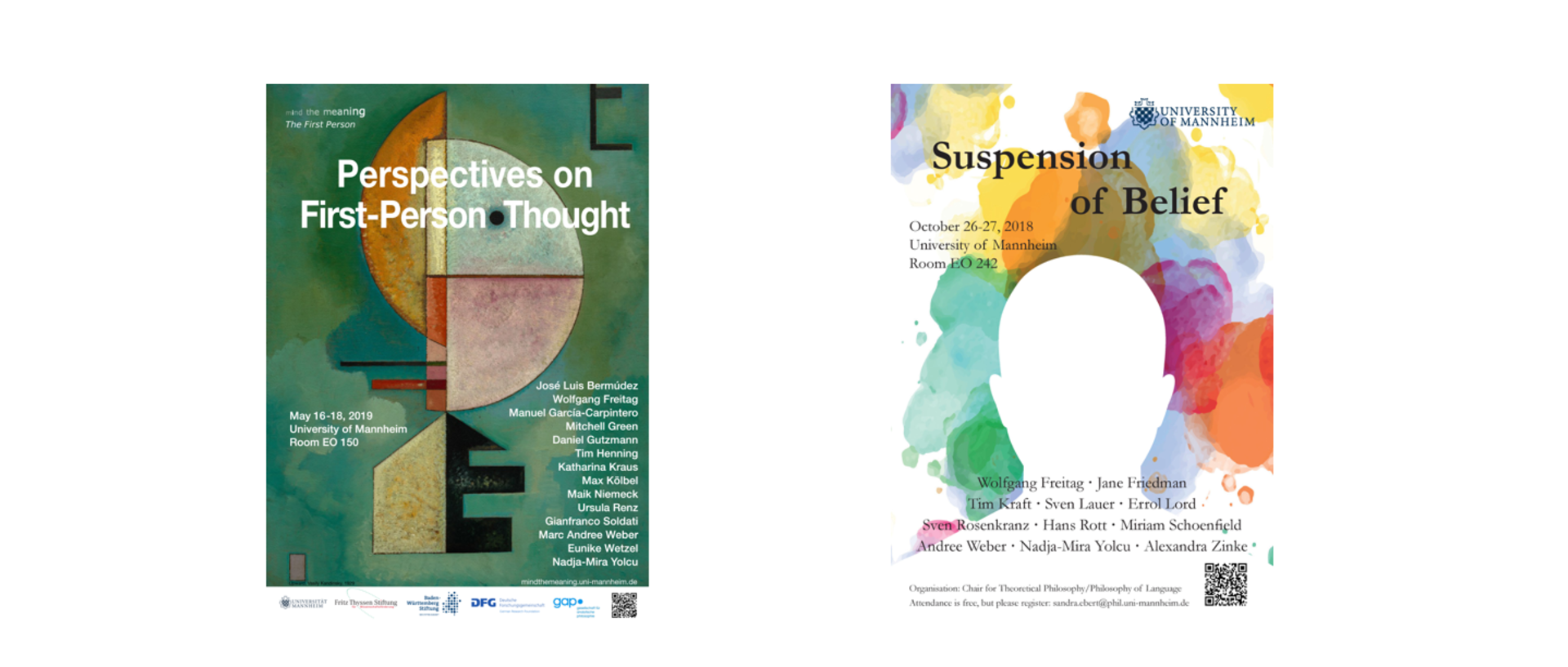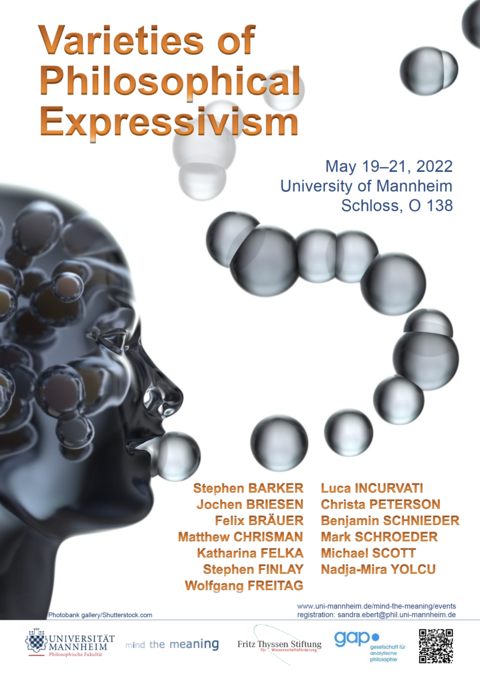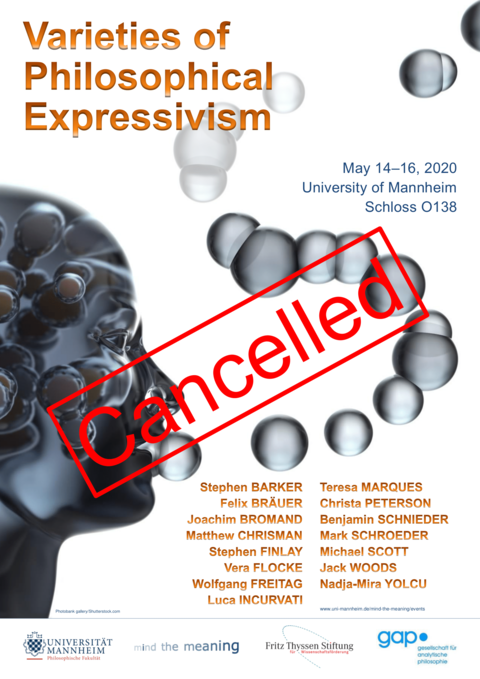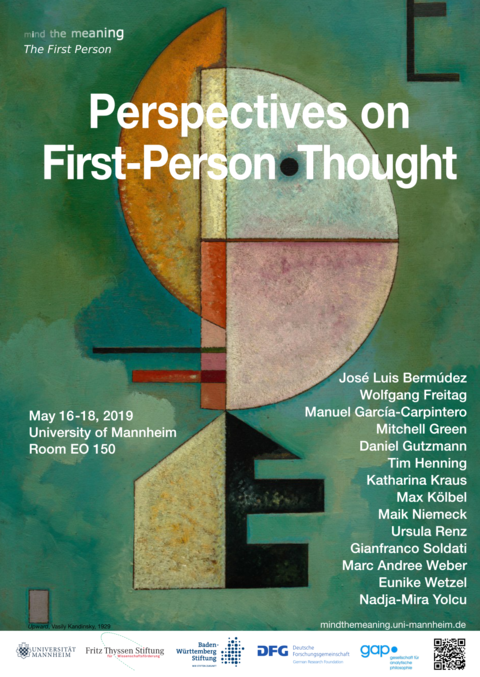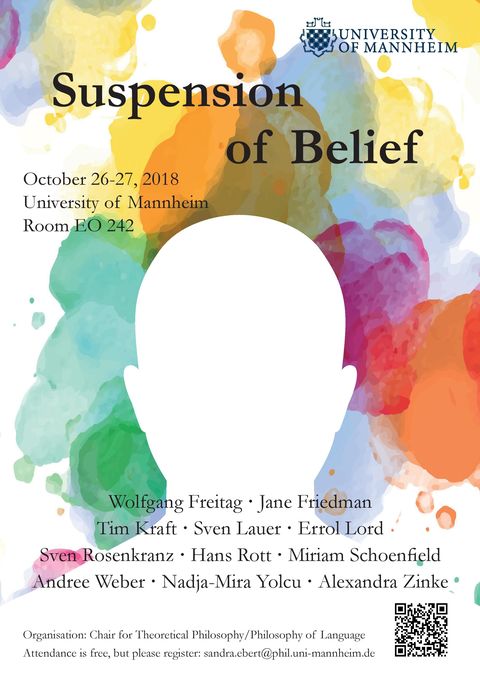Workshops und Tagungen
Vergangene Workshops
Varieties of Philosophical Expressivism
Varieties of Philosophical Expressivism
Internationale Konferenz
19.–21. Mai 2022
Universität Mannheim
Schloss, Raum O 138 | ZOOMDie Konferenz war ursprünglich für Mai 2020 geplant, musste jedoch auf Grund der Covid-19 Pandemie verschoben werden.
Philosophers have become increasingly interested in expressivist views within various subfields such as ethics, aesthetics, epistemology, the philosophy of language and logic, and the philosophy of mind. What unites these views is the idea that affirmations about a certain subject matter are not, or not primarily, descriptions of a mind-independent reality, but serve to express the speakers’ mental states. It is, however, a controversial matter what this means exactly and what it implies. What are the formal, what are the logical properties of the notion of expression? Can one express a mental state one does not possess? And what, if any, are the semantic or pragmatic consequences of adopting an expressivist position? For example, are there any genuinely expressivist views that can plausibly be combined with classical truth-value semantics, and if so, are they restricted to specific classes of claims?
In the conference, we aim at identifying structural similarities (as well as differences) between the distinct strands of expressivism in order to shed light on, among other things, the notion of expression, the conceptual and semantic challenges that expressivists face, and the merits and drawbacks of expressivist theories in general.
Die Konferenz wird von Mitgliedern des Projekts Mind the Meaning: The Philosophy of Psychological Expressivism organisiert.
Das Programm ist hier verfügbar: https://www.uni-mannheim.de/mind-the-meaning/events/
Die Vorträge und Diskussionen werden live über ZOOM übertragen. Die entsprechenden ZOOM-Links werden jeweils eine Stunde vor Eventbeginn hier verfügbar sein: https://www.uni-mannheim.de/mind-the-meaning/events/
Die Teilnahme ist kostenfrei. Um Registrierung wird gebeten: sandra.ebertuni-mannheim.de
Varieties of Philosophical Expressivism (verschoben wegen der Covid-19 Pandemie)
Varieties of Philosophical Expressivism
Internationale Konferenz
*ABGESAGT AUFGRUND DER COVID-19 PANDEMIE. NACHHOLTERMIN: 19.-21. MAI 2022*
14.-16. Mai 2020
Universität Mannheim
O 138 Fuchs-Petrolub-Festsaal
Schloss Ostflügel, 1. StockIn the last decades, philosophers have become increasingly interested in expressivist views within various subfields such as ethics, aesthetics, epistemology, the philosophy of language, the philosophy of mind, and the philosophy of law. What unites these views is the idea that affirmations about a certain subject matter are not, or not primarily, descriptions of an underlying reality, but serve to express the speakers’ mental states. It is, however, a controversial matter what this means exactly and what it implies. What are the formal, what are the logical properties of the notion of expression? Can one express a mental state one does not possess? And what, if any, are the semantic, what are the pragmatic consequences of adopting an expressivist position? For example, are there any genuinely expressivist views that can plausibly be combined with classical truth-value semantics, and if so, are they restricted to specific classes of claims?
In the conference, we aim at identifying structural similarities (as well as differences) between the distinct strands of expressivism in order to shed light on, among other things, the notion of expression, the conceptual and semantic challenges that expressivists face, and the merits and drawbacks of expressivist theories in general.
Bestätigte SprecherInnen:
Stephen Barker
Felix Bräuer
Joachim Bromand
Matthew Chrisman
Stephen Finlay
Wolfgang Freitag
Vera Flocke
Luca Incurvati
Teresa Marques
Christa Peterson
Benjamin Schnieder
Mark Schroeder
Michael Scott
Jack Woods
Nadja-Mira YolcuDie Konferenz wird von Mitgliedern des Projekts Mind the Meaning: The Philosophy of Psychological Expressivism organisiert.
36. Berliner Forum für Wirtschafts- und Unternehmensethik
Workshop
19. – 20. Juli 2019
Universität Mannheim
EW 169Programm
Das Berliner Forum ist ein Netzwerk zur Wirtschafts- und Unternehmensethik, das bereits seit mehr als zehn Jahren besteht. Zu dem Forum kommen etwa einmal im Jahr Promovierende und Postdocs verschiedener Disziplinen in einer offenen Arbeitsatmosphäre zusammen, um sich über ihre aktuellen Forschungsarbeiten, -entwürfe und konzeptionelle Ideen in gemeinsamer Runde auszutauschen. Ziel des Berliner Forums ist es, Argumentationslinien und Beiträge zu normativen Fragen wirtschaftlichen Handelns aus unterschiedlichen Forschungsperspektiven unter Promovierenden und Habilitierenden zu diskutieren. In den Dialog treten dabei Philosophen, Ökonomen, Wirtschafts- und Unternehmensethiker gleichermaßen, um Themen, die unter den Schlagwörtern CSR und Nachhaltigkeit sowie in der Unternehmens- und Wirtschaftsethik verhandelt werden, zu erörtern. Die Teilnahme ist mit Vortrag oder als Diskutant/
in ohne Vortrag möglich. Den Referierenden stehen jeweils insgesamt eine Stunde für Vortrag und Diskussion zur Verfügung (20 Minuten Vortrag, 40 Minuten Diskussion). Perspectives on First-Person Thought
Internationale Konferenz
16.-18. Mai 2019
Universität Mannheim
EO 150Programm
Weitere Infos finden Sie hier.
Is there anything special about the way we think about ourselves, and in particular about our own inner world? It is sometimes said that thoughts about our own conscious states involve a kind of awareness that is fundamentally different from the one that comes with other thoughts. It is also often held that we cannot misrepresent the subject of our current expreriences, and that this phenomenon must be explained by an adequate theory of first-person thought. Yet it is difficult to discern what exactly these claims entail. Moreover, there is no unconctroversial way to relate phenomena of first-person thought to phenomena of first-person speech. When we utter self-ascriptions of mental states, do we thereby simply report in which state we are, or do we rather directly express the respective state?
Our aim in this conference is to bring together researchers – including philosophers, linguists, and psychologists – who will address and dicuss these and other problems relating to first-person thought and the way it is articulated in speech.
The conference will be the concluding event of the project The First Person – Semantic, Epistemic, and Scientific Perspectives (PI: Prof. Dr. Katharina Kraus, University of Notre Dame) and the inaugural conference of the project Mind the Meaning: The Philosophy of Psychological Expressivism (PI: Prof. Dr. Wolfgang Freitag).Suspension of Belief
Internationale Konferenz
26.-27. Oktober 2018
Universität Mannheim
EO 242Programm
We often suspend belief. Some questions we haven't considered yet, others are still under investigation, and yet others seem to allow for no definite answer. We often withhold belief and, more importantly, we do so rationally. Despite its core role in our doxastic everyday life, suspension of belief has not received much attention in the epistemological literature, which has mainly focused on positive belief alone. The conference will fill this lacuna and investigate the nature and rational profile of suspension of belief.
